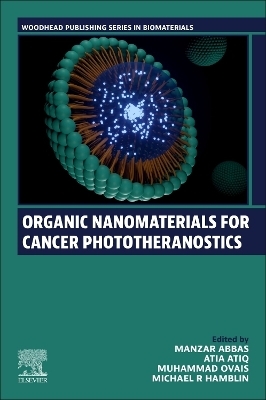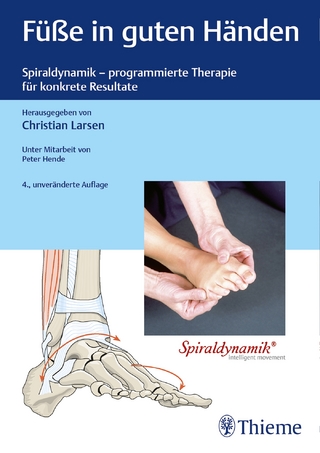
Organic Nanomaterials for Cancer Phototheranostics
Woodhead Publishing (Verlag)
978-0-323-95758-8 (ISBN)
Dr. Abbas started working as an assistant professor of chemistry at Khalifa University of Science and Technology, Abu Dhabi, UAE in 2022. He holds a Ph.D. degree in material chemistry from the Institute of Process Engineering, Chinese Academy of Sciences, Beijing, China. After graduating in 2017, he was a post-doctoral researcher at King Abdullah University of Science and Technology, Saudi Arabia. Later in 2019, he was awarded the Marie Curie Individual Fellowship from European Foundation and he joined the Institute for Molecules and Materials at Radboud University, Netherlands. By training, he is a chemist with work experience in organic synthesis, peptide chemistry, and material science with a focus on the multidisciplinary cutting-edge research direction in advanced drug delivery, and synthetic cells. He is the recipient of the 2017 UCAS Excellent International Graduate award and has published high-impact articles in peer-reviewed journals like the Journal of American Chemical Society/ACS, Nature Chemistry, Advanced Materials-Wiley, and Chemical Society Review/RSC. His group research is focused on the design and synthesis of small functional molecules including short peptides, and self-assembled nano-micro level materials for anticancer and protocell applications. His research work has been cited over 1900 times and he is serving as guest editor for a joint special collection on “peptide-based supramolecular systems in Chemistry – A European Journal, ChemBioChem, and Journal of Peptide Science for Wiley-VCH publisher. He is an active reviewer for reputed journals including Nano Today, Advanced Science, ChemBioChem, Chemistry-An Asian Journal, and Colloid and Surfaces A; Physicochemical and Engineering Aspects. Dr. Atiq completed her Ph.D. in physics in 2019 from the Institute of Physics, The Islamia University of Bahawalpur, Pakistan. She is currently working as an Assistant Professor in the Multan campus of the University of Education, Lahore, Pakistan. Her research interests are nanomaterials for biomedical applications, photon dose calculations, treatment planning, and quality assurance programs in radiotherapy. Muhammad Ovais is a Research Scientist at the CAS Key Laboratory for Biomedical Effects of Nanomaterials and Nanosafety, CAS Center of Excellence in Nanoscience, National Center for Nanoscience and Technology (NCNST), China. His research focuses on nanomedicine and cancer theranostics. Dr. Ovais received his Ph.D. with distinction from CAS Key Laboratory for Biomedical Effects of Nanomaterials and Nanosafety, National Center for Nanoscience and Technology of China. His research interests are in nanomedicines, biomaterials, immuno-engineering, and nanocatalytic medicine. He is the recipient of over 30 international awards, has authored over 50 journal articles and book chapters in journals such as Advanced Materials, NanoToday, Nanomedicine-Future Medicine, and Science China Chemistry. Michael Hamblin was a Principal Investigator at the Wellman Center for Photomedicine at Massachusetts General Hospital, and Associate Professor of Dermatology, Harvard Medical School. He is now a Visiting Professor at the University of Johannesburg, South Africa. His research interests include photodynamic therapy and photobiomodulation. He has published more than 530 peer-reviewed articles and 25 textbooks. His work has been cited more than 49k times and he is Editor-in-Chief of Photobiomodulation, Photomedicine, and Laser Surgery.
1. Contemporary developments, trends, and challenges in cancer phototheranostics 2. The role of nanotechnology: Organic nanomaterials and the mechanism of cancer phototheranostics 3. Synthetic strategies of short peptide-modified nanomaterials for diagnostics and phototherapy 4. Development of metal–peptide composite nanomaterials for diagnosis and phototherapy 5. Fabrication of protein-based nanomaterials as photonanomedicine agents 6. Synthetic strategies of protein–metal nanomaterials as photonanomedicine agents 7. Fabrication of polymeric nanomaterials for phototheranostics of cancer 8. Development of metal–polymer composite nanomaterials for diagnosis and phototherapy 9. Lipid-based nanomaterials as phototheranostic agents 10. Safety considerations of organic nanomaterials for phototheranostics
| Erscheinungsdatum | 09.09.2023 |
|---|---|
| Reihe/Serie | Woodhead Publishing Series in Biomaterials |
| Sprache | englisch |
| Maße | 152 x 229 mm |
| Gewicht | 1000 g |
| Themenwelt | Medizin / Pharmazie ► Physiotherapie / Ergotherapie ► Orthopädie |
| Technik ► Maschinenbau | |
| Technik ► Medizintechnik | |
| Technik ► Umwelttechnik / Biotechnologie | |
| ISBN-10 | 0-323-95758-7 / 0323957587 |
| ISBN-13 | 978-0-323-95758-8 / 9780323957588 |
| Zustand | Neuware |
| Informationen gemäß Produktsicherheitsverordnung (GPSR) | |
| Haben Sie eine Frage zum Produkt? |
aus dem Bereich


